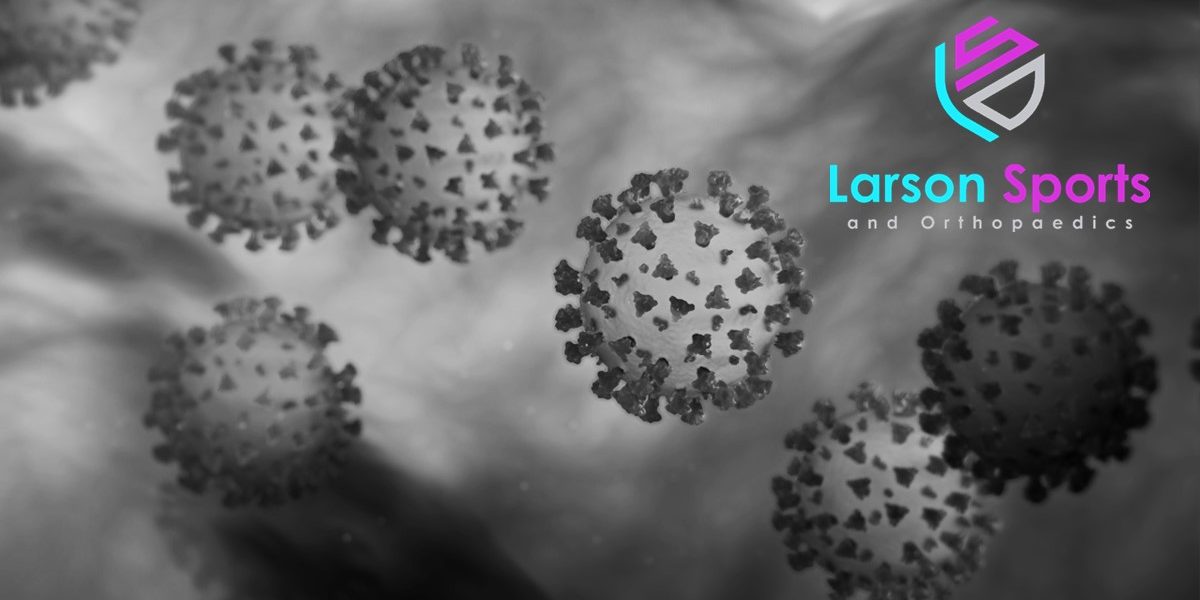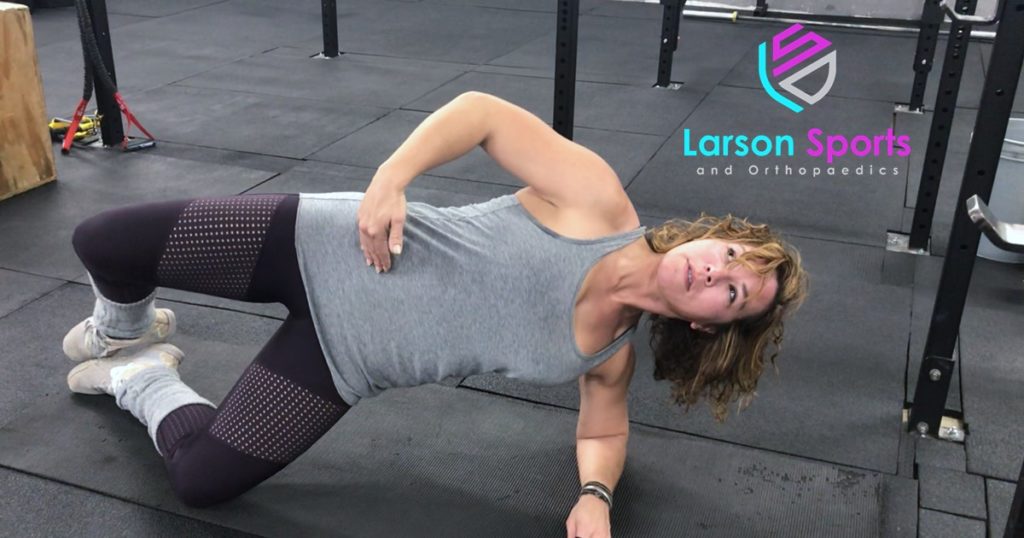As I write this, we are deep in the grip of the Coronavirus and the societal response to this pandemic. When faced with quarantine, loss of work, and uncertainty we all look for some semblance of normalcy. And for many people that means getting in their daily exercise. This leads many people back to the age-old question: Should you exercise when sick? Or in this case, should you hit the gym when we are trying to prevent the spread of COVID-19?
The “Open Window” Myth
Since the 70s, there has been a pervasive myth that intense exercise hampers the immune leading to a higher risk of infections. This seemed odd because it’s well known that regular exercise actually strengthens your immune system. Of course, you can have too much of a good thing. So it seemed possible that running a marathon or ultra-marathon could wear out your immune system and leave an “open window” through which infections could take hold.
But this theory was based on a couple of scientific papers with questionable methods and some faulty conclusions. A couple of studies in the ’80s and ’90s found that runners reported very high rates of upper respiratory infections after competing in major organized races. In fact, more than 30% of these athletes reported symptoms of respiratory infection following these events!
The Myth of “Weakened” Immune Function
While investigating this finding, several potential causes were identified. Some researchers found that antibodies in the mouth, nose, and throat were lower after intense exercise. Others found a drop in White Blood Cells (WBCs) following intense exercise.
WBCs are the front line soldiers of our immune system. And antibodies are what they use to help destroy invaders like bacteria and viruses. So we had some papers showing what appeared to be a high risk of infection after marathons. And some other studies which seemed to show that these long bouts of exercise weakened the immune system. So the “open window” hypothesis seemed to be real.
But there were some problems with the science. First of all, the studies on infections were only based on symptoms and did not include any actual testing for viruses or bacteria. Secondly, they were contradicted by later studies showing that the most elite athletes were the least likely to get sick in general. And finally, the supporting studies on immune system function missed some key explanations for their findings.
Closing the “Open Window” Myth
First of all, the original surveys greatly overestimated the true number of infections. Running a full marathon involves a lot of heavy breathing, often in very hot or very cold environments. This can cause general irritation of our airways, giving people symptoms similar to the common cold. In later studies, actual cultures were taken from all marathon participants. And they found that a much smaller percentage of these athletes actually had true infections. The rest simply had irritated airways!
You know how marathon runners often put bandaids over their nipples? (Well if you didn’t know that, you do now! You’re welcome. And here’s an article in case you don’t believe me) It’s because after twenty six miles of running, even a light shirt can rub them raw. Well, the same thing can happen to your airways just from all that heavy breathing!
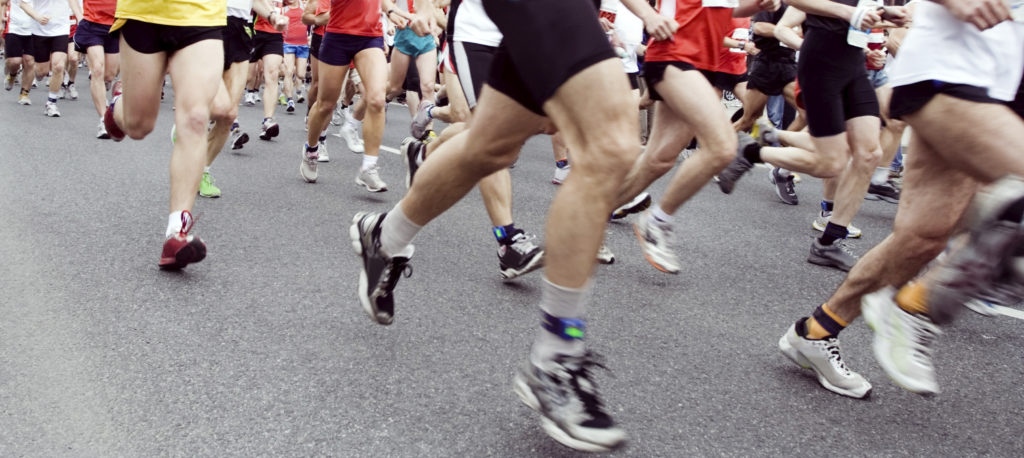
Exposure To People Is The Biggest Risk For Infection
More recent studies show that it is not actually the intense exercise of a marathon that increases the risk of infections. In fact, the increased number of confirmed viral illnesses after marathons can be completely explained by two simple factors: exposure to more people and travel.
Yes, you read that right: the risk of an infection after a marathon is mostly due to the fact that you are in close proximity to a very large number of people! Just think about how many people run major marathons. Now think about all the people that line the streets to watch and support the athletes. Then add in all the people you encounter while flying to a major marathon event!
Social Distancing Before It Was Cool
Turns out that large groups of people spread infections quickly! And that’s most of the reason people get sick after a marathon. In fact, the risk of developing a viral infection after a marathon is similar to the rate of getting sick during other mass-gatherings of people, like the annual pilgrimage to Mecca.
Air travel on our way to these events also puts us at risk for infection. The risk of spreading illness on a flight is related to many different factors including sleep disruption, lower oxygen levels, higher radiation, temperature changes, dehydration, fatigue, poor diet, dehydration, and psychological stress. Add those factors into a situation where you are breathing heavily next to 30,000 other people; it turns out a lot of people will be taking home their own little viral participation trophy!
The True Effect Of Exercise On Immune Activity
But all that doesn’t explain the supposedly weakened immune system seen in those other studies. For example, the early studies showed decreased WBC’s circulating in the bloodstream. But they didn’t take into account the reason why. It’s actually because the WBCs were moving from the bloodstream into the other tissues, getting ready to defend the body. Rather than a sign of weakness, it was a sign of an activated immune system.
Likewise, the studies looking at antibody levels in saliva looked at the concentration of antibodies in the mouth and throat. But exercise increases the amount of saliva our bodies produce. So the truth was that the antibody concentration was a bit watered down, but the total number of antibodies in the saliva stayed the same. So there was no “Open Window” here either.
But Should You Exercise When Sick?
So heavy bouts of exercise do not weaken your immune system. Nor does it leave an “open window” for infections to pounce. But the question remains: Should I exercise when I am sick?
There is very little actual data regarding this question. Obviously the ethics of infecting people with a disease just to run an experiment on them is a little sketchy. And yet it’s been done! The ’90s were a wild time! (No wonder those of us from Gen X have a nihilistic view of the world.)
In this study, they infected 50 healthy young adults with the common cold. Yep, they just stuck a swab full of rhinovirus up their nose and let nature take its course. Then they had 34 of them do intense exercise for 40 minutes every other day. The other 16 were instructed not to exercise.
The results? They found no difference in symptoms or length of illness between the two groups! Vigorous exercise while sick with the common cold does not make the illness any worse or better.
Vigorous exercise does not change the course of the common cold, for the better or for the worse.
Working Out When Sick
So what are the recommendations then? Should you exercise when ill? I’ll say this: it’s fine to exercise when you are sick. But it won’t help you get better faster. And if you feel like it’s making you worse, then you should stop.
I recommend drawing the line at symptoms above or below the neck. It’s probably fine to exercise with symptoms that are above the neck. This includes the following symptoms:
- Runny Nose
- Nasal Congestion
- Sneezing
- Headache
- Stuffy Ears
But if you have generalized symptoms or issues below the neck, it’s probably best to stay home and rest. This would include fevers, cough, nausea, vomiting, diarrhea, body aches and fatigue. I mean some of those go without saying really. Does anyone think it’s a great idea to deadlift with diarrhea? Or to go running while nauseated? And nobody wants to catch this junk from you either. Stay in bed, catch up on that Netflix list.
Exercise Does Decrease Your Risk of Illness
But back to the relationship between exercise and immune function. Most studies show that the more fit you are, the lower your risk of illness becomes. Ultramarathoners report roughly a quarter of the number of sick days each year compared to the average population. And we have seen decreased levels of illness when comparing swimmers of international level to nationally competitive levels. That’s like the difference between a collegiate swimmer and an Olympic level.
And that’s only looking at infections. Remember, exercise is an excellent way to prevent many of the common diseases that plague our society like heart disease, stroke, and diabetes.
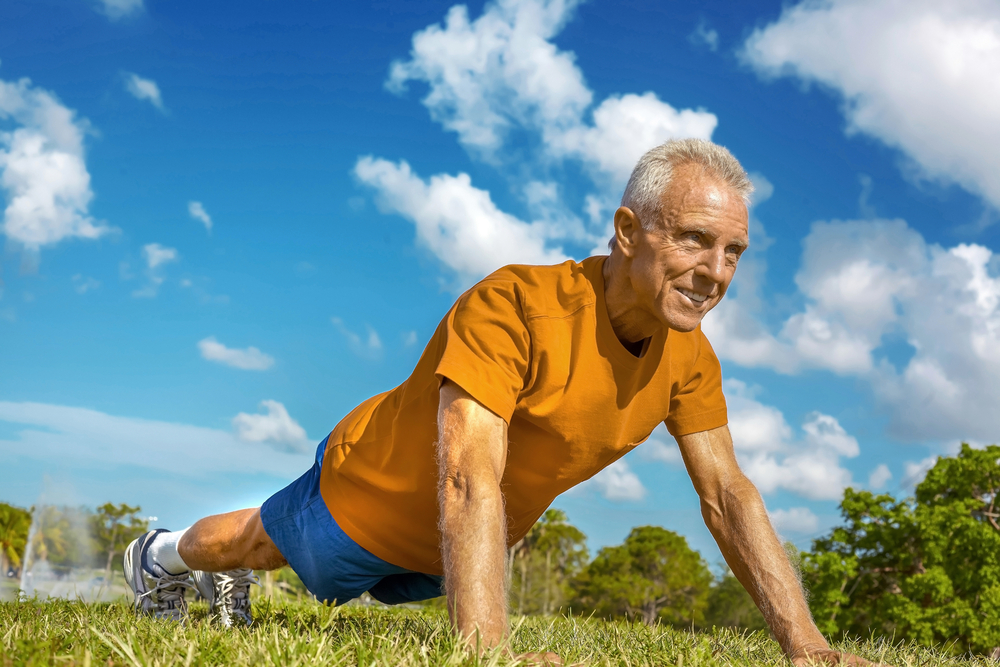
Exercise Improves Antibody Production
While young adults of all fitness levels muster the same antibody response to a vaccine, the same is not true for older individuals. Sedentary people over 60 years old produce relatively few antibodies in response to a vaccine. But exercise can turn the trickle of antibodies into a flood! Men over 60 who exercise regularly had anywhere from 30% to 300% improvement in response to a vaccine compared to older men that don’t work out.
Social Distancing And Coronavirus Prevention
While exercise may make you more prepared to fight off new diseases like the Coronavirus COVID-19, it doesn’t make you immune. You still need to take part in social distancing to slow the spread of this disease. And that includes limiting large groups such as large fitness classes. If your gym is open, and you choose to go, be sure to take precautions.
Social Cohesion
Working out with others has a huge effect on how much work you do during the session. And this social connection is very important in reducing stress and improving well-being. So I would encourage all gyms to take advantage of the technology of our day to maintain the social aspect of their regular classes.
Gyms should consider putting their daily workouts on social media outlets and adapt them for minimal equipment. Maybe do Facebook Live classes at your regular workout times. And encourage members who’ve been traveling to use these options so they don’t put others at risk!
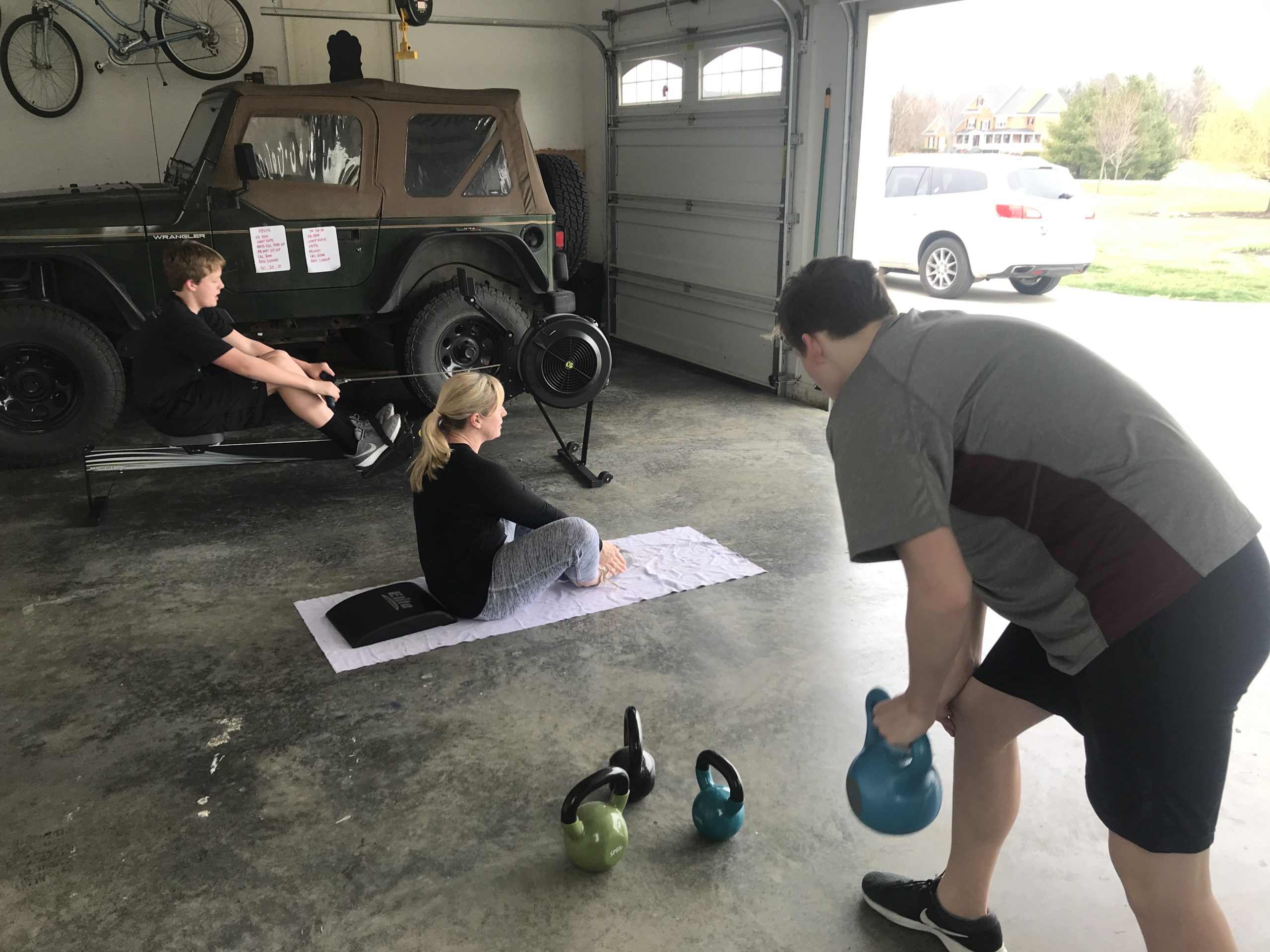
Workouts You Can Do From Home
Since I’ve just returned from Peru (after nearly getting stuck there when they closed the airports!) I’m self-quarantining to protect others from anything I might be carrying. And my kids’ schools are closed for the next month. But we have set aside 11-12:00 every day for a family exercise session. And I would encourage you all to do the same.
Free Workouts You Can Do At Home
During this time of quarantine, many people are offering online versions of their daily workouts for free online. If you have resistance bands, you can do our “Busy Mom Workout” from the comfort of your own home. And if you don’t have resistance bands, you can still get them on Amazon, they aren’t sold out. Click HERE for a direct link. affiliate link
Planet Fitness is also offering a daily streaming workout for those of us stuck at home. You can follow this link to watch their daily “Work In.”
If you are looking for something more heavy-duty, Invictus Fitness is offering their daily high-intensity programming with modifications for those stuck at home with minimal equipment. Check it out HERE.
And for something more in the mid-range, you can try the daily Orange Theory workout as well. They substitute common household items for standard fitness equipment to give you a decent home quarantine workout from a socially acceptable distance.
References
- Debunking the Myth of Exercise-Induced Immune Suppression: Redefining the Impact of Exercise on Immunological Health Across the Lifespan
- Infectious episodes in runners before and after the Los Angeles Marathon.
- Ultramarathon running and upper respiratory tract infections. An epidemiological survey.
- The Generation of Antibody Diversity
- A prospective study of age and lifestyle factors in relation to community-acquired pneumonia in US men and women.
- The symptomatology of upper respiratory tract infections and exercise in elderly people.
- Training-related risk of common illnesses in elite swimmers over a 4-yr period.
- High Training Volumes are Associated with a Low Number of Self-Reported Sick Days in Elite Endurance Athletes.
- Health and Exercise-Related Medical Issues among 1,212 Ultramarathon Runners: Baseline Findings from the Ultrarunners Longitudinal TRAcking (ULTRA) Study.
- Effects of exercise on vaccine-induced immune responses
- Cardiovascular Exercise Intervention Improves the Primary Antibody Response to Keyhole Limpet Hemocyanin (KLH) in Previously Sedentary Older Adults.
- Exercise and Respiratory Tract Viral Infections.
- The effect of exercise training on the severity and duration of a viral upper respiratory illness.
- Position statement. Part two: Maintaining immune health.
- Position statement. Part one: Immune function and exercise.

